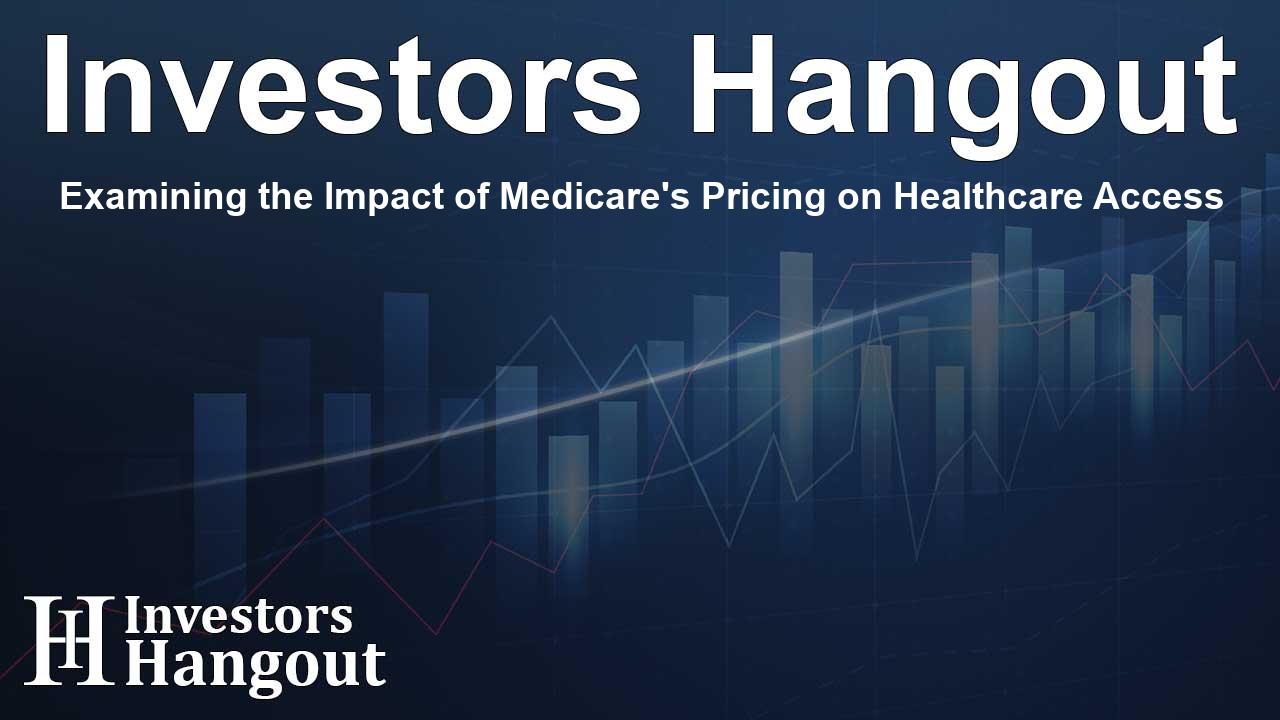Examining the Impact of Medicare's Pricing on Healthcare Access

Understanding the Doctor Shortage Linked to Medicare Pricing
The concern surrounding America's healthcare system is growing, particularly regarding the impending shortage of healthcare providers. Recent discussions have highlighted how Medicare's pricing policies are influencing physician availability across the nation. Experts warn that the reimbursement rates from Medicare are not just insufficient; they are diminishing the overall accessibility to quality healthcare.
The Current State of Medicare Payments
Dr. Wayne Winegarden, a senior fellow and director at the Pacific Research Institute's Center for Medical Economics and Innovation, emphasizes that Medicare's compensation to physicians has not only failed to keep up with inflation but has dramatically decreased since 2001. According to his findings, the adjustments in reimbursement have shown a staggering 33% drop in inflation-adjusted payments. This decline signals not only a financial strain on medical professionals but also hints at a healthcare crisis that could affect patient care.
Implications on Physician Availability
The ramifications of these dropped reimbursement rates are reaching far beyond financial losses for medical practitioners. The U.S. is currently grappling with a shortage of approximately 37,000 doctors—a figure that could escalate to 86,000 by 2036. This situation can discourage new graduates from pursuing careers in medicine as they encounter overwhelming debts and unappealing salary projections.
The Distortion of Healthcare Dynamics
Furthermore, the disparities in reimbursements between hospitals and independent practices complicate the situation. Medicare tends to offer higher payments to hospitals compared to independent physicians offering identical services. Such inequities contribute to a worrying trend of medical practice consolidation, reducing patient options and potentially impacting care quality.
Declining Interest in Medical Careers
Another alarming observation is the drop in medical school applications, which have lessened for three consecutive years, reaching the lowest level since 2017. This trend potentially foreshadows worsened shortages in healthcare providers. The long-standing issue of insufficient Medicare reimbursements acts as a deterrent for future physicians, who may find the prospect of entering this field increasingly uninviting.
Addressing the Crisis Through Proposed Reforms
As the situation unfolds, Dr. Winegarden proposes potential reforms to ameliorate this crisis. He urges a shift towards a healthcare model that enhances Medicare through direct payment avenues, empowering beneficiaries with options such as health savings accounts. The idea is to allow doctors to operate competitively, encouraging value-based care that can rejuvenate patient access and enhance overall healthcare quality.
Taking Action on Healthcare Payment Systems
The urgency to reform Medicare's pricing structure cannot be overstated. Without necessary adjustments, the situation is poised to deteriorate, posing risks to the healthcare system's integrity and patient wellbeing. Addressing these concerns through practical reforms is vital to ensure that future generations receive the care they need without delay.
About the Pacific Research Institute
The Pacific Research Institute stands as a nonpartisan organization that advocates for innovative, market-based policies to enhance individual freedoms and opportunities. Their aim is to usher in reforms that could potentially transform the current healthcare landscape for better access and quality.
Frequently Asked Questions
What is the current state of Medicare payments?
Medicare payments to physicians have declined significantly, with inflation-adjusted rates dropping by 33% since 2001.
How does Medicare pricing affect doctor shortages?
Low reimbursement rates are driving many doctors out of the profession, contributing to a predicted shortage of 86,000 physicians by 2036.
Why are medical school applications declining?
Ongoing poor compensation trends and financial uncertainties are leading to fewer students applying to medical schools.
What reforms are proposed to solve these issues?
Proposed reforms include transitioning Medicare to a direct payment model and ensuring physician payments align with business realities.
How does consolidation affect patient choice?
Medicare's higher payments to hospitals over independent practices can lead to consolidation, reducing the options available to patients and potentially impacting care quality.
About The Author
Contact Owen Jenkins privately here. Or send an email with ATTN: Owen Jenkins as the subject to contact@investorshangout.com.
About Investors Hangout
Investors Hangout is a leading online stock forum for financial discussion and learning, offering a wide range of free tools and resources. It draws in traders of all levels, who exchange market knowledge, investigate trading tactics, and keep an eye on industry developments in real time. Featuring financial articles, stock message boards, quotes, charts, company profiles, and live news updates. Through cooperative learning and a wealth of informational resources, it helps users from novices creating their first portfolios to experts honing their techniques. Join Investors Hangout today: https://investorshangout.com/
The content of this article is based on factual, publicly available information and does not represent legal, financial, or investment advice. Investors Hangout does not offer financial advice, and the author is not a licensed financial advisor. Consult a qualified advisor before making any financial or investment decisions based on this article. This article should not be considered advice to purchase, sell, or hold any securities or other investments. If any of the material provided here is inaccurate, please contact us for corrections.
